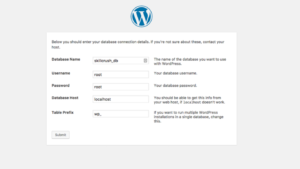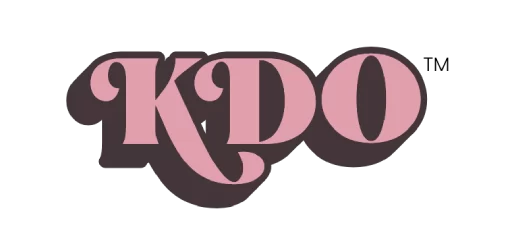Blogging For Beginners with Complete Guideline
Blogging for beginners and students is best for earning and growing business online. This is the complete guideline for beginners to create a blog.
What is Blogging?
Blogging, a portmanteau of “web” and “logging,” refers to the practice of creating and maintaining an online journal or informational website, commonly known as a blog. In the expansive digital landscape, blogging has evolved into a versatile and influential medium for individuals, businesses, and organizations to share information, express ideas, and engage with audiences across the globe.
Blogging for Beginners:
Blogging is a powerful medium that allows you to share your thoughts, expertise, and passion with the world. Whether you are looking to express yourself, build an online presence, or even monetize your content, starting a blog can be an exciting and rewarding venture. If you are a beginner eager to embark on the blogging journey, this step-by-step guide will help you launch your first blog with confidence.
A Step-by-step Guide to Start Blogging for Beginners:
Read these steps before creating your blog to avoid the mistakes.
Step 1: Define Your Purpose and Niche

Before diving into the technical aspects, take time to define your blogging purpose and niche. Ask yourself:
- What topics are you passionate about?
- Who is your target audience?
- What unique perspective or value can you offer?
Choosing a niche that aligns with your interests and expertise will help you create content that resonates with your audience.
Step 2: Select a Blogging Platform
Choose a blogging platform that suits your needs.

WordPress, Blogger, and Wix are popular options for beginners due to their user-friendly interfaces. WordPress offers flexibility and scalability as your blog grows.
Step 3: Pick a Domain Name and Hosting
Selecting a memorable and relevant domain name is crucial.

Ensure it reflects your blog’s theme and is easy to remember. Purchase a domain and choose a reliable hosting provider.
Many platforms offer hosting services as part of their packages.
Step 4: How to Install and Set Up WordPress in Journey of Blogging for Beginners?
If you have chosen WordPress, install it on your hosting platform.

Most hosting providers offer a one click installation option. Set up the basic configurations, including your blog title, tagline, and administrative details.
Step 5: Choose a Theme While Blogging for Beginners
Set a visually enchanting and (mobile & desktop) responsive WordPress theme for the blog.
WordPress provides numerous free and premium themes catering to various styles and niches.

Ensure your chosen theme is mobile friendliness for a better user experience.
step 6: Customize Your Blog
Personalize your blog by customizing its appearance.

Adjust colors, fonts, and layout elements to match your brand. Consider creating a unique logo to enhance your blog’s identity.
Step 7: Create Essential Pages

Create essential pages such as:
- About Page: Introduce yourself and share your blog’s purpose.
- Contact Page: Provide a way for readers to get in touch.
- Privacy Policy: Essential for legal compliance.
Step 8: Install Essential Plugins
Enhance your blog’s functionality with plugins. Some essential ones include:
- Yoast SEO: Optimize your content for search engines.
- Akismet: Prevent spam comments.
- UpdraftPlus: Backup your blog regularly.
Step 9: Plan Your Content Strategy

Develop a content strategy to guide your blogging efforts. Consider:
Content Calendar: Plan when and what you’ll publish.
Keyword Research: take high search volume Keywords that relevant to the niche by using paid and free tools for SEO.
Categories and Tags: Organize your content for easy navigation.
Step 10: Publish Quality Content in the Post:

Craft and publish your first blog post. Focus on providing value to your audience, whether through informative articles, personal anecdotes, or a combination of both.
Step 11: Promote Your Blog
Promote your blog to reach a wider audience. Utilize social media, email newsletters, and networking to share your content. Open comments and discussions section to see the feedback and to engage the audience.
Step 12: Learn and Adapt
Blogging is an ongoing learning process. Follow the latest industry trends and updates. Check the marketing and content marketing policies of the competitors. Be open to feedback and adapt your approach based on your evolving understanding of your audience.
Blogging in the Digital Era:
- Professional Blogging:
– Many individuals have turned blogging into a full-time profession. Professional bloggers monetize their platforms through advertising, sponsorships, affiliate marketing, and other revenue streams.
- Corporate Blogging:
– Businesses leverage blogs as part of their content marketing strategies. Corporate blogs provide a platform to showcase expertise, share industry insights, and connect with customers on a more personal level.
- Impact on Journalism:
– Blogging has influenced traditional journalism by providing an alternative avenue for news dissemination. Citizen journalism, where individuals report news independently, has gained prominence through blogs.
- Influencer Culture:
– Blogging plays a pivotal role in the rise of influencer culture. Social media influencers often maintain blogs to complement their content and provide more in-depth information to their followers.
The Future of Blogging for Beginners:
Blogging continues to evolve with emerging technologies and shifting digital landscapes. The rise of microblogging on platforms like Twitter and Instagram, along with the integration of artificial intelligence and immersive technologies, hints at the dynamic future of this digital medium.
Conclusion on Blogging for Beginners
In essence, blogging is a dynamic and expressive medium that empowers individuals and entities to share their stories, knowledge, and perspectives with a global audience. It thrives on creativity, authenticity, and the ever-evolving nature of the online community.
Starting your first blog can be a thrilling experience. As you navigate the steps outlined in this guide, remember to enjoy the journey. Blogging is not just about sharing information; it’s about building connections, expressing yourself, and evolving as a content creator. Embrace the learning process, stay committed to your niche, and, most importantly, have fun sharing your unique perspective with the world. Happy blogging!


